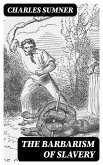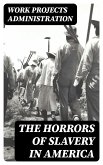In "Thoughts on Slavery and Cheap Sugar," J. Ewing Ritchie delves into the intricate relationship between the sugar industry and the moral implications of slavery during the 19th century. Through a combination of persuasive rhetoric and meticulous analysis, Ritchie presents a powerful indictment of the economic systems that perpetuate human suffering. Employing a clear, accessible prose style, he weaves together historical context with vivid illustrations that reveal the brutality of slavery while critiquing the societal complicity in the consumption of cheap sugar. The work serves as both a cogent argument and a call to ethical action amidst the prevailing attitudes of his time. J. Ewing Ritchie, a prominent social commentator and journalist of the Victorian era, was deeply influenced by the socio-political climate of his day. His career in journalism provided him with a platform to express his views on pressing social issues, and his opposition to slavery was fueled by a moral sensibility informed by religious beliefs and strong humanitarian principles. Ritchie's engagement with the abolitionist movement underscores his commitment to social justice, making this work a significant contribution to anti-slavery literature. I highly recommend "Thoughts on Slavery and Cheap Sugar" to scholars, students, and general readers interested in 19th-century social issues, ethics, and the historical intersections of commerce and human rights. Ritchie's impassioned exploration of slavery's moral implications remains relevant today, challenging us to reflect on our own consumption choices and the human cost behind them.
Dieser Download kann aus rechtlichen Gründen nur mit Rechnungsadresse in A, B, BG, CY, CZ, D, DK, EW, E, FIN, F, GR, H, IRL, I, LT, L, LR, M, NL, PL, P, R, S, SLO, SK ausgeliefert werden.









